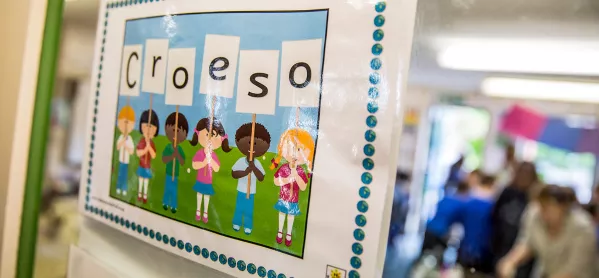University students are to be deployed as reading mentors in 10 Welsh schools in a bid to see if they can help boost the literacy skills of upper primary pupils.
Small groups of up to eight learners in Years 5 and 6 will have six one-hour sessions in person with their mentors, to help them get ready for secondary school.
The project will be overseen by Cardiff University, which has already begun recruiting both postgraduate and undergraduate students from across Wales to become part of a network of mentors. Each student will be provided with training, with the government saying Welsh reading will be incorporated into any expansion of the project.
Education minister Jeremy Miles is hopeful that this approach can help “ignite a passion for reading from a young age”.
The news came as the Welsh government was criticised by opposition politicians for failing to enter Welsh children in the Progress in International Reading Literacy Study (Pirls) international education reading study.
Welsh Conservative education spokesperson Laura Anne Jones suggested that the Welsh government had opted out of the survey “because, after 25 years of Wales under Labour, we have falling literacy skills, an ever-growing attainment gap and dropping teacher numbers”.
She called for the Welsh government to stop “hiding from scrutiny” and to set out “a clear plan to boost teacher numbers and ensure our young people have the best start in life to achieve”.
The results of the study were revealed yesterday, with England placed fourth out of 43 countries, having previously been joint eighth.
Scotland - which opted out of Pirls in 2010 - also came under criticism yesterday for failing to take part, although new education secretary Jenny Gilruth has committed to participating in future rounds.
Responding, the Welsh government said it already takes part in the Programme for International Student Assessment (Pisa) tests - which measure 15-year-olds’ ability in reading, mathematics and science every three years - and when this was last published it “showed an improvement in reading scores in Wales”.
The government added that the Pirls assessment process “is costly and places a significant burden on schools”.
Wales has taken part in Pisa since 2006 and its score in reading has fluctuated during the five Pisa cycles since. In 2018, Wales’ reading score (483) was the lowest in the UK.
The previous Welsh government had a target that Wales would reach 500 in its Pisa scores by the 2021 cycle (now taking place in 2022 as a result of the Covid pandemic). This requires a 17-point rise from its reading score in 2018. To put this into context, Wales’ reading score increased by six points between 2015 and 2018.
The results from Pisa 2022 will be released in December.
Literacy is prioritised under the new Curriculum for Wales, which started being introduced in all primary schools and around half of secondaries this year. it is one of the three statutory cross-curricular skills alongside numeracy and digital competence.
Launching the mentoring pilot project, Mr Miles said: “Reading is an essential skill that pupils will use throughout their life. It’s vital that we ignite a passion for reading from a young age.
“Improving reading skills is a national priority, which is why in we have invested an additional £5 million to support pupils, including ensuring every child receives a free book.”
He added: “The pilot mentoring programme will provide benefits to improve literacy skills and also build communication and confidence for both the mentor and those being mentored.”




